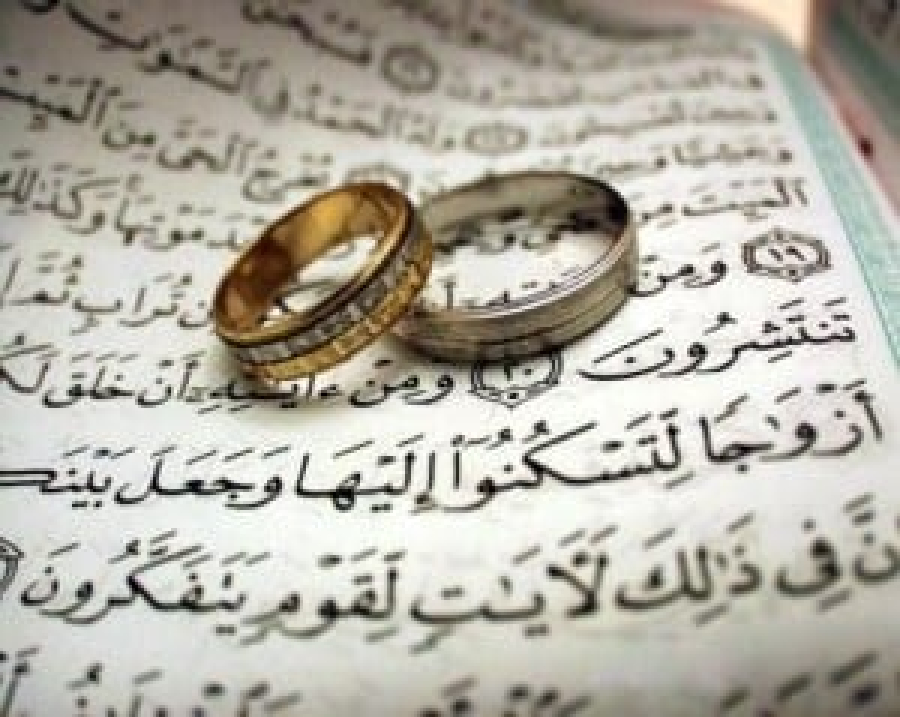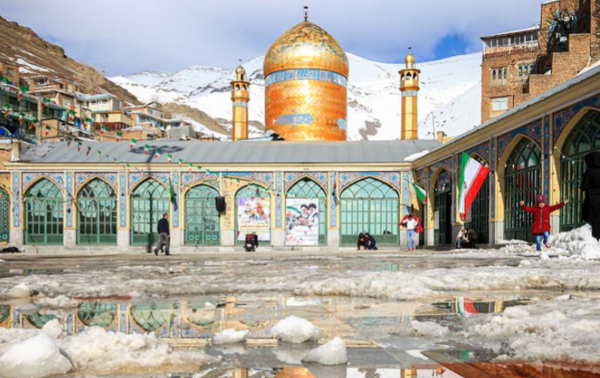Muslims are accused of innovating for this matter (temporary marriage), whilst it is one of divine laws of Islam and is derived from the Book and Sunna (tradition).
It means, the Islamic jurisprudence has validated these two kinds of marriage, according to Quran and Sunna (tradition); permanent marriage (there is no need to clarify) and temporary marriage or Mut’a.
Temporary marriage: If there is not any legally hindrance –having fosterage and blood relationships-, man and woman will enter in to a certain time period resulted from matrimonial contract. They should appoint amount of property as dowry. And after expiring that period, they separate from each other without pronouncing the divorce. And in the case of childbirth during this time, he/she will be their legal child and this child would be their heir. After the expiring of that period, woman has to observe Iddah, and if she becomes pregnant, she should also observe Iddah until the birth of child. And if she is the temporary wife of that man or observes the Iddah, she cannot marry to another man.
In most of Islamic laws, the temporary marriage is similar to permanent marriage, there are only two differences: appointing a period and non-obligation of alimony in temporary marriage. Regardless of these obvious differences, there are also some unimportant ones and we do not indicate them.
Islam is a comprehensive and last divine religion. And it offers temporary marriage as a solution to the sexual problems. Suppose a young man is studying or working abroad and cannot permanently marry. What should he do? And what is his duty? This young man has three choices:
A: repressing sexual instinct and depriving himself of sexual pleasure.
B: illegitimate relationship with corrupted women or who are infected with disease.
C: temporary marriage to a pure woman under particular conditions. Without any alimony and nor the problems of permanent marriage.
There are not anymore choices. Of course, it does not mean that temporary marriage is peculiar to these conditions, but by considering the mentioned conditions and the temporary marriage, a person can realize the beneficent of divine law of Islam.
It has to be said that Islamic scholars have confirmed another kind of permanent marriage, which is in fact, the temporary marriage: when a man permanently marries to a woman and one or both of them reach a consensus to divorce after a while. Although these two marriages have different names, they are same in nature.
Temporary marriage and Mutta’ are legitimate, according to Quran and Sunna of messenger of God –S.A-. the holy Quran has said:” so whatever you have enjoyed from them give them their obligated wage” (1). Most of commentators believe this verse has referred to temporary marriage. So consequently, in the vision of Islam there is not any doubt in legality of this kind of marriage but there is a disagreement over the following matter; is this kind of marriage repealed or still legitimate?
There have been referred to the validness (not being repealed) of temporary marriage in the narratives of Shi’ites and Sunnites. Acting according to this law was banned in the era of second caliph. It is worth mentioning that based on the speech of caliph in this regard, this kind of marriage (temporary marriage) was permitted in the era of messenger of God –S.A- and second Caliph (‘Umar) repealed Mutta’, because he has said:” O people! In the era of messenger of God –S.A-, there have been three things which I reject and abrogate, and whoever does it, will be punished: first, Mutta’ of women, second, Mutta’ of Hajj (pilgrimage) and third, saying: Hayya A’la Khair Al-‘amal. (2)
It is surprising that the first and third matters have been banned so far, but unlike the rule of second caliph, all of Muslims perform pilgrimage’s Mutta’. (Mutta’ of Hajj).
The following quotation of Bukhaari from ‘Emraan Ibne Hosain is a proof that Messenger of God –S.A- did not ban Mutta’:”the Mutta’ verse was sent down in Quran, we used to observe it in the era of messenger of God and at that time there did not reveal any verse to ban Mutta’, messenger of God –S.A- did not also abrogate it during his life, and second caliph banned Mutta’ personally. (3) (4)
1. The Al-nisa (Women) Sura: 24
2. Tajrid comment, Qushji, Imamat chapter, page 464 and other sources
3. Sahih Bukhari: volume 6, page 37 (the comment of verse 196 of Al_baqara (The Cow) Sura
4. The aspects of Shi’ite’s creed, page 282
makarem.ir


















